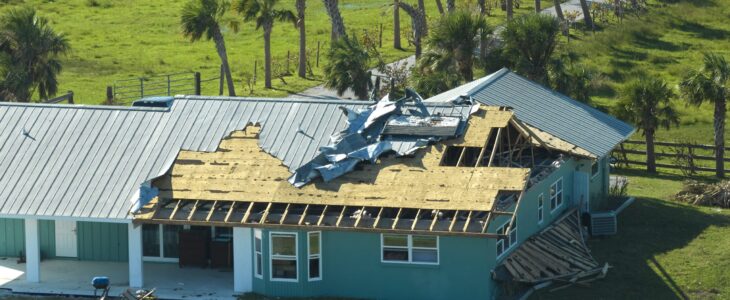“This storm will be like nothing the state has ever seen.” – Governor Rick Scott’s warning regarding Hurricane Irma in 2017.
Each year as hurricane season rolls around, Floridians across the state begin preparing for the worst. As tracked storms get closer to the Florida coast, emergency response teams prepare to provide aid to citizens across the state. At the same time, roofing companies also make preparations. Unfortunately, in many cases, preparations by these companies are anything but well-meaning. While disaster response teams rush in to assist in affected areas, many roofers rush in to take advantage of homeowners who have incurred damage to their roofs. NBC News described an all too unfortunate but typical scenario:
“Contractors knock on doors offering to inspect homeowners’ roofs for storm damage. They say they can help get a roof replacement covered by insurance, and they persuade the homeowners to sign away their rights to file the claims themselves. The contractors then file fraudulent damage claims, and when the insurance companies balk, the contractors sue. The insurance companies usually settle the disputed claims for many times more than the original claim. Most of that money goes to the contractors’ lawyers in the form of a “contingency fee multiplier.” Some lawyers file hundreds of such lawsuits a year. The homeowner may get a free roof, but everyone pays for it through increased rates.”
In an effort to protect homeowners and insurance companies from these predatory schemes, the Florida legislature recently modified Florida Statute § 489.147 to include a provision allotting homeowners a 10-day period of time in which they can rescind roofing contracts entered into after a declared state of emergency.
The modification to the statute as provided for in House Bill 939 / Senate Bill 1066 reads:
489.147 Prohibited property insurance practices; contract requirements.—
(1) As used in this section, the term:
(b) “Residential property owner” means the person who holds the legal title to the residential real property that is subject of and directly impacted by the action of a governmental entity. The term does not include a governmental entity.
. . . .
(6)(a) A residential property owner may cancel a contract to replace or repair a roof without penalty or obligation within 10 days after the execution of the contract or by the official start date, whichever comes first, if the contract was entered into based on events that are subject of a declaration of a state of emergency by the Governor. For the purposes of this subsection, the official start date is the date on which work that includes the installation of materials that will be included in the final work on the roof commences, a final permit has been issued, or a temporary repair to the roof covering or roof has been made in compliance with the Florida Building Code.
…
The purpose of the bill is simple, homeowners now have 10 days in which to change their minds about contracts they enter into with roofers post-emergency. In addition, contractors are required to include specific language in their contracts to put homeowners on notice of this legal right. These modifications to the current statute will go into effect on July 1, 2024, just in time for the 2024 hurricane season.
While you can’t always be fully prepared for a hurricane’s landfall due to the unpredictability of such storms, you can absolutely be prepared to assert your right to cancel a contract with a roofer who turns out to be less than reputable. That being said, we understand all too well the havoc that roofing scams can wreak on unsuspecting homeowners. If you have found yourself to be the victim of a predatory roofing contractor, or you know someone who has, our team of experienced construction litigation attorneys can help. You can schedule a consultation with one of our attorneys by calling (239) 330-1494 today!
* * * * * * * * * *
THIS BLOG IS INTENDED FOR GENERAL INFORMATION PURPOSES ONLY. IT DOES NOT CONSTITUTE LEGAL ADVICE. THE READER SHOULD CONSULT WITH KNOWLEDGEABLE LEGAL COUNSEL TO DETERMINE HOW APPLICABLE LAWS APPLY TO SPECIFIC FACTS AND SITUATIONS. BLOG POSTS ARE BASED ON THE MOST CURRENT INFORMATION AT THE TIME THEY ARE WRITTEN. SINCE IT IS POSSIBLE THAT THE LAWS OR OTHER CIRCUMSTANCES MAY HAVE CHANGED SINCE PUBLICATION, PLEASE CALL US TO DISCUSS ANY ACTION YOU MAY BE CONSIDERING AS A RESULT OF READING THIS BLOG.


